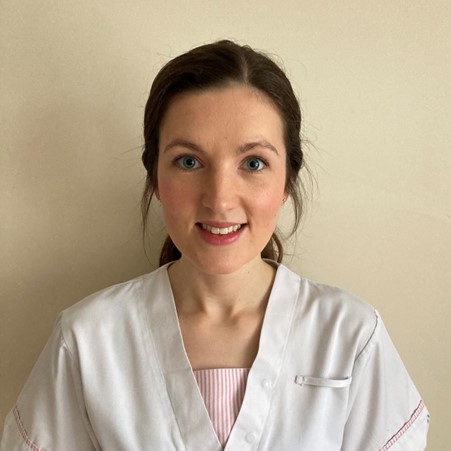Can you tell us about your role and the difference it makes to patient care?
Having taken up my current role and first job as an Adult Speech and Language Therapy Assistant in August 2015 here at South Tees, today I work on a part-time basis within the ENT Outpatients department.
I carry out inpatient and outpatient reviews and therapy on behalf of a number of therapists and as part of a multidisciplinary team, working with Head and Neck cancer patients. I also undertake a variety of administrative tasks as required to support the Speech & Language Therapists I work alongside.
My role involves, demonstrating and explaining swallowing exercises, and I share information about the expected impact of treatment in relation to swallowing and voice. I also take several swallowing baseline measures at this appointment. We repeat these at three, six and twelve months post-treatment during combined clinic appointments as appropriate – it is very rewarding to have the opportunity to monitor, support, and, where appropriate, celebrate patients’ progress.
I am proud to have played a role in the establishment and continued running of a patient support group. I re-established and now run a pre-existing speech aid service, and I have responsibility for the system of stock-taking and ordering of specialist surgical voice restoration equipment.
What attracted you to being a support worker?
I originally entered this role having completed an undergraduate degree in English Language and Linguistics, and with the ambition of applying to join a Masters course in order to train as a qualified Speech & Language Therapist.
My priorities have since changed, this is in part on account that I have found my role as an assistant has continued to be fulfilling; my duties have grown in line with the expansion of my knowledge base and the experience I have accrued. Importantly, I find the role allows me to achieve a successful work/life balance.


